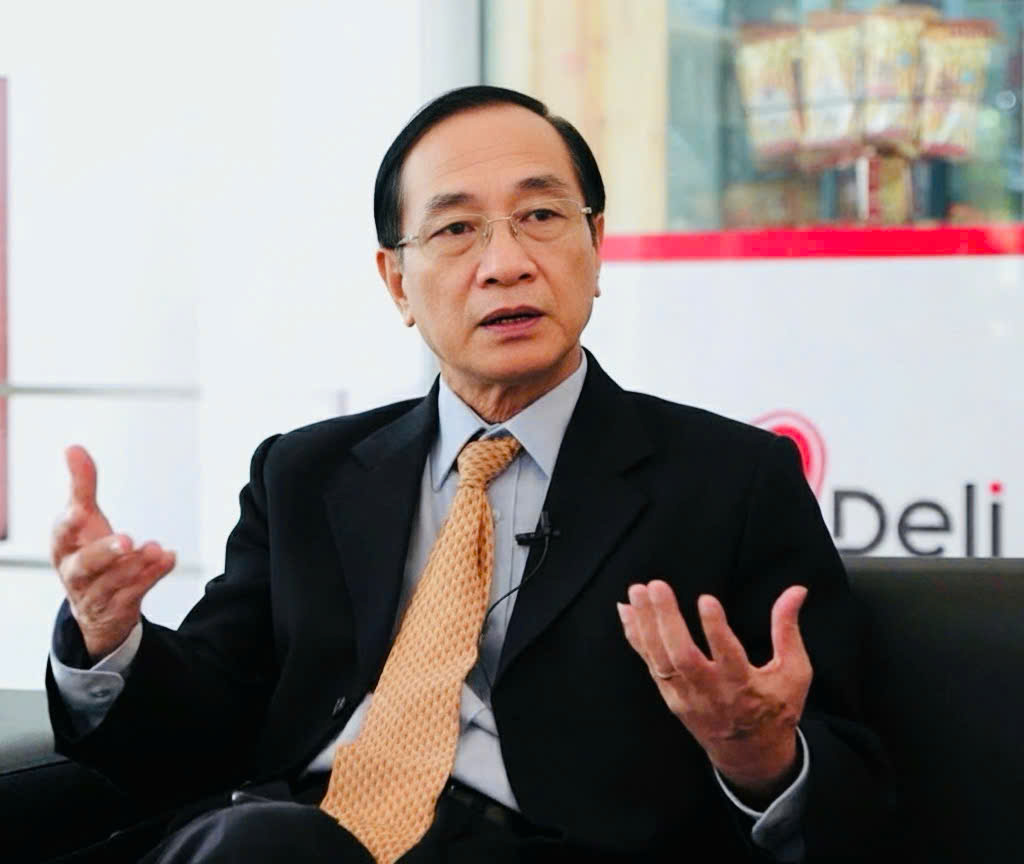The Ministry of Home Affairs has just issued a document proposing not to stipulate a specific salary coefficient for teachers due to the specific factor of the profession, which is vocational allowances, which has been adjusted up according to Resolution No. 71-NQ/TW.
This is something that the public is interested in, because the salary policy will directly affect the lives of millions of teachers across the country.
Need to change the mindset of paying salaries in the education sector
Discussing the proposal to adjust the special coefficient for teachers, Dr. Hoang Ngoc Vinh - former Director of the Department of Vocational Education (Ministry of Education and Training) said that the debate on the "special salary coefficient" only touches the top. The problem lies in the current salary design method being heavily based on qualifications, while the nature of work - especially in preschool - is associated with factors that the salary table does not take into account: Occupational risks, emotional pressure and actual labor intensity. This is the reason why teachers' income is behind the value of work and the minimum living standard.

" kindergartens work 9 - 11 hours a day, always worried about children falling, choking, fighting, or suddenly getting sick; having to manage cold, locking - holding - reassuring continuously; being exposed to diseases all year round and consuming the most emotions in the whole industry. But just because their standard qualifications are college, they are still at the lowest salary level.
Meanwhile, secondary and high school teachers have shorter teaching hours, lower risks but receive significantly higher salaries. That is a huge paradox of the current system" - Mr. Vinh analyzed.
Looking at the world, Mr. Vinh gave an example in Singapore, they pay salaries based on the real value of work - responsibility, risks, emotional pressure and minimal living needs - not according to qualifications.
Thanks to the flexible salary structure, preschool teachers in Singapore have an access to income or even higher than new general education teachers. The Government also adds risk allowances and emotional allowances to accurately reflect the nature of caring for young children.
In Vietnam, there is a big paradox: The most risky level of education, the heaviest labor intensity is paid the lowest salary.
"If we do not amend this salary payment philosophy, we will continue to lose preschool teachers, lose confidence and lose the quality of education from the root. This is also a policy criticism recommendation from the Ministry of Home Affairs" - Mr. Vinh said and said that the most important thing is to ensure that teachers can make a living from their salaries.
"We have to calculate whether a preschool teacher is enough to live on and raise 1 to 2 children. If their salary does not ensure their lives, no matter how much encouragement they are given, they will find it difficult to feel secure in their profession, said Mr. Vinh.
To escape the middle-income trap, we must start with education
Speaking with Lao Dong on the National Assembly corridor, delegate Tran Hoang Ngan (HCMC Delegation) also expressed his opinion that there should not be a debate on whether or not there is a "special salary coefficient", but need to look at the issue as a whole.
According to Mr. Ngan, countries that want to move from low- to middle-income countries, then from average to high-over-average and finally high-income countries, all have to go a long way. People call it a middle-income trap.

Some countries have been stuck for 20 years, some for 30 years, and Vietnam may take 50 years or more to escape this trap, said Mr. Ngan, adding that one of the most important driving forces to help countries succeed in escaping the middle-income trap is education. Education is the focus, science and technology are the focus.
If we only rely on increasing investment or expanding capital, development will not be able to break out. To achieve high income, it must come from thinking, from productivity, from innovation - all of which originate from education. Education must be considered the foundation of development, and worthy treatment for the teaching staff is indispensable in this strategy - delegate Tran Hoang Ngan said.
He also said that salary reform in the education sector is necessary. This is a policy that has been approved by the people, approved by the National Assembly and clearly expressed in Resolution 71 of the Politburo.
However, investing in education is not only about increasing teachers' salaries but also investing enough in facilities, laboratories, and practical conditions so that learners can practice skills and access knowledge right in school.
"It is necessary to place salary policies in a broader context. Along with that is the policy of developing education, investing in people, knowledge, and science. Only then will the new policy go into depth" - the delegate said.
Previously, in the draft Decree regulating salary and allowance policies for teachers to collect comments, the Ministry of Education and Training proposed that all teachers will enjoy a "special salary coefficient".
Accordingly, preschool teachers are entitled to 1.25 times, other titles of teachers are entitled to 1.15 times compared to the current salary coefficient. Teachers teaching students with disabilities, in border areas, boarding schools are added by 0.05%.
Specific coefficients are only calculated with salaries, not applied to allowances.











